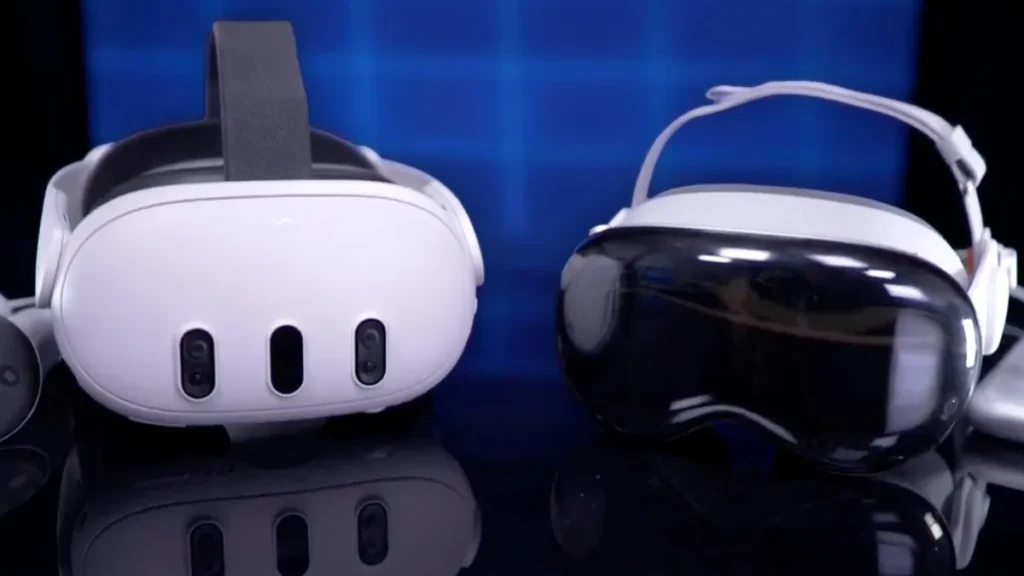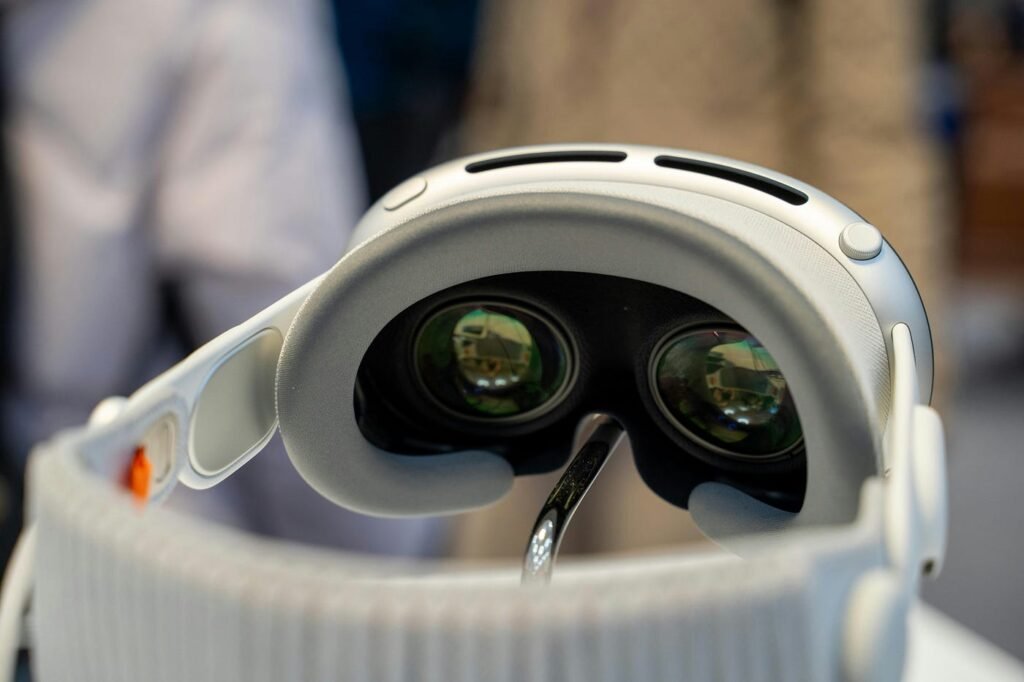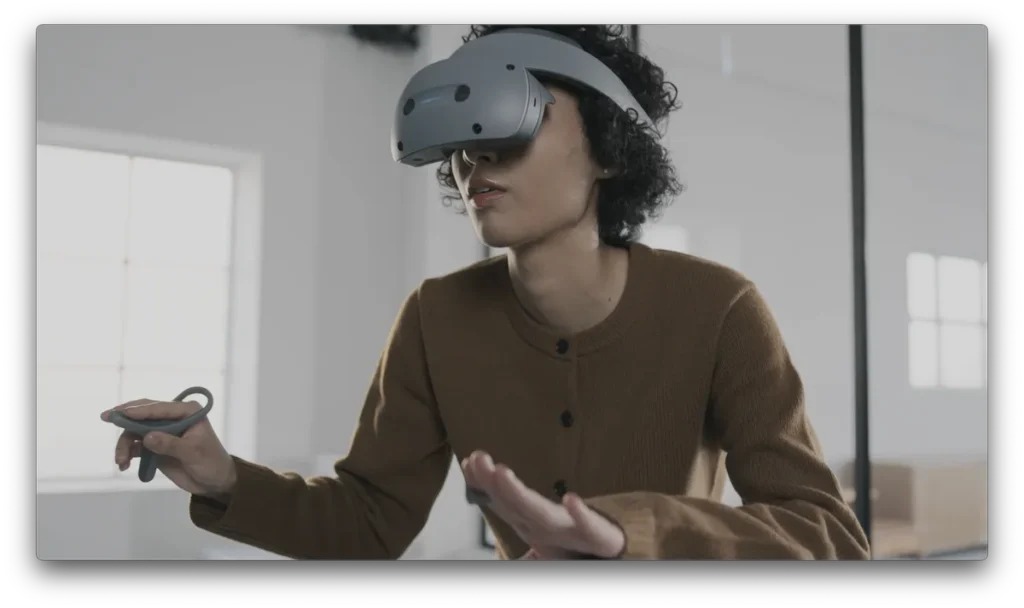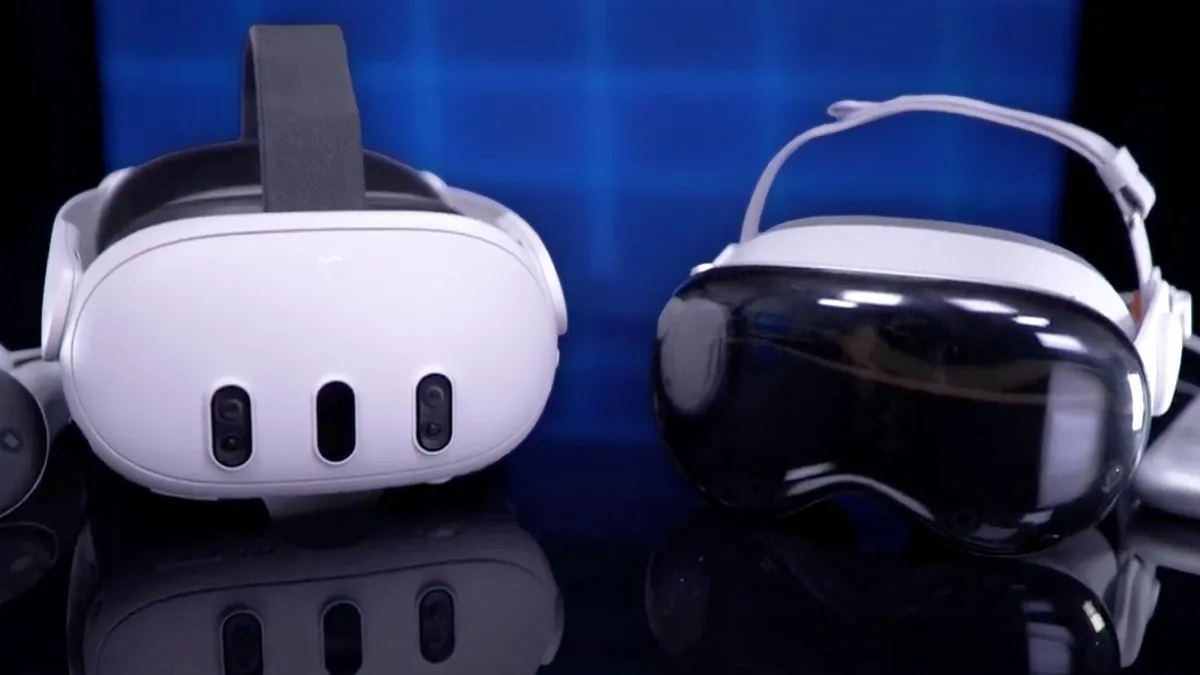Meta, the tech giant known for its social media platforms, had ambitious plans to enter the high-end augmented reality (AR) headset market. However, recent reports suggest that the company has decided to abandon these plans in the wake of Apple’s underwhelming sales for the Vision Pro.

Apple Vision Pro’s Impact on Meta’s AR Ambitions
Apple’s Vision Pro, priced at a substantial $3,499, has faced challenges in gaining traction in the market. Despite its impressive features, the device has struggled to attract a significant customer base. This lack of consumer interest seems to have played a significant role in Meta’s decision to reassess its own AR headset plans.
Meta’s Abandoned AR Headset: A $1,000 Dream
Meta’s high-end AR headset was initially envisioned as a premium product with a target price of $1,000. The device was set to compete directly with Apple’s Vision Pro, offering similar features and capabilities but at a more affordable price point. However, the challenges faced by the Vision Pro likely prompted Meta to reconsider the viability of its own high-end offering.
Focus Shift to Affordable AR Headsets
Given the apparent difficulties in the high-end AR market, Meta has decided to shift its focus to more affordable options. The company is now prioritizing the development of the Quest 4, the successor to the Quest 3. The Quest 4 is expected to be a more accessible and affordable AR headset, targeting a wider range of consumers.

The Cost of Micro-OLED Technology
One of the major factors contributing to the high cost of Apple’s Vision Pro, and potentially Meta’s abandoned AR headset, is the use of micro-OLED technology. This advanced display technology offers superior image quality but is also significantly more expensive to produce compared to other options.
The prohibitive cost of micro-OLED panels would have likely forced Meta to charge a premium price for its AR headset, potentially limiting its appeal to a smaller market.
Limited Utility and Consumer Behavior
In addition to the high price, Apple’s Vision Pro has faced criticism for its limited utility. Many consumers have found that the device doesn’t offer enough value to justify its cost, leading to a high return rate. Meta likely recognized this consumer behavior and realized that focusing on more affordable and versatile AR headsets would be a more sustainable strategy.

Meta’s Future Plans
While Meta has abandoned its high-end AR headset project, the company remains committed to the AR market. By focusing on affordable options like the Quest 4 and improving its software ecosystem, Meta aims to make AR more accessible and appealing to a wider audience.
The company’s future success in the AR space will depend on its ability to deliver compelling and affordable products that meet the needs and preferences of consumers.
Also Read: Best Games Announced at Gamescom 2024


